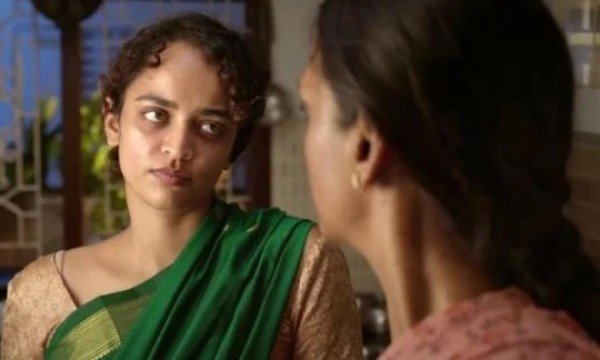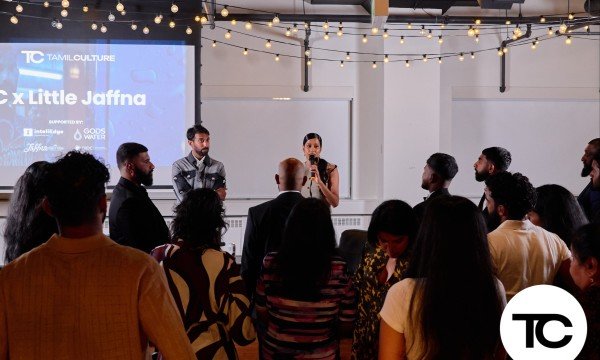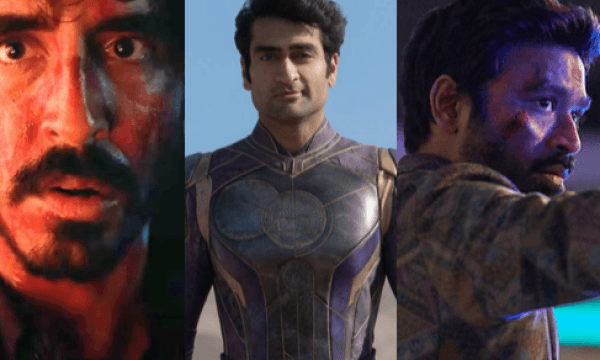
Date on your own terms! myTamilDate.com has been the most trusted dating community for single Tamils around the world for close to a decade! We’re the premiere dating site for diaspora Tamils and have the largest membership base in Canada, USA, UK & more.
Get to know our other success stories here.
____
As a British-Tamil teenager with hardcore movie buffs as parents, Tamil cinema and pop culture is not something I could avoid. I spent a lot of my childhood watching Tamil films.
As a child of the early 2000s, I idolized actors such as Vijay and Dhanush. Relatives love to remind me of my childhood days spent dancing along to their hit songs and repeatedly watching their movies without losing focus. Many now question how someone who grew up loving Tamil movies would suddenly have no interest in them at all.
It was after garnering a passion for social justice and feminism that I came to realize the existence of a great deal of misogyny and sexism in the male-dominated Tamil film industry. Now, looking back at the movies I once loved, I cringe in discomfort at the casual sexism. After some years, you would expect there to be a change in the way women are portrayed in Tamil films now. However, I now feel as though it has somehow worsened, with a few exceptions.
Firstly, it is a well-known fact that Tamil films are very much a hero-driven. Fanboys glorify this idea. With the majority of Tamil films being commercial, most filmmakers go along with this setup to accumulate the most profit. Due to this, in many films the lead female character has no significant connection to the main storyline, or is playing the typical “damsel in distress” role and can only be saved by the lead male.
One clear example is the popular action-masala film Vedhalam starring Ajith. In this movie, Shruti Hassan plays the love interest of Ajith. Throughout the movie, we see that she is only involved for comic relief and in the compulsory love scenes. It is almost as if she is just eye candy with her own song and dance number thrown in.
Another female character is played by Lakshmi Menon, who plays Ajith’s "unofficial" sister. In the movie, Menon’s parents are killed. It is Ajith who takes revenge on those responsible as she suffers from memory loss. Whenever her character faces a crisis, it is the overprotective brother Ajith who comes to save the day. There are many more such examples in recent films in which the male lead is glorified and idolized more than ever.
In Vijay’s action family drama film Theri, the film’s director Atlee announces that the movie focuses on women’s issues, especially in India. In one part of the film, Vijay’s character, a police officer, investigates a missing person’s case that later becomes a rape case. Vijay experiences many difficulties while trying to bring justice as the culprit is the son of an influential politician.
Until this point in the movie, I had big hopes for what was to come, and was quite happy that such a popular film was focusing on something very realistic. However, there was disappointment when the only way he brings justice is by brutally murdering the rapist. The movie then goes on to focus on the rest of the storyline, leaving the mention of rape and abuse as is.
The reason why this is a problem is that by solely removing one rapist, it certainly does not do anything about the thousands of other potential rapists in the country. It does not change anything about the way some men unfairly treat and perceive women. The movie does not in any way talk about combating rape, but takes a very one dimensional way out of the situation so the story can continue.
If the excuse was not having enough time to dwell on the issue, I do not think that they should have broached such a serious and prevalent issue in India and not given it the time and work it deserves. I do not believe such an issue should be used for publicity purposes or to make some sort of connection with the story being told, as the rest of the story does not have any connection to rape at all.
Colourism is a problem prevalent in Tamil society as well as Tamil cinema. Most often in Tamil language films fair-skinned women take on a lead role. Almost always they are not Tamil themselves.
There are many in the Tamil female population who are dark-skinned. Yet when the entertainment industry prefers fair-skinned actresses, it further supports the notion that lighter skin is the desired complexion and causes many insecurities.
When there is already a lack of representation of dark-skinned women, the Tamil film industry makes things worse by casting actresses who are of not Indian or even of South Asian descent at all.
With the rising fame of Amy Jackson, everything is questioned when a white British actress darkens her skin on purpose to play Indian characters. In an industry where actual Indian actresses do not even get hired if their skin is not light enough, this actress who stars in multiple Tamil films intentionally darkens her skin to play Indian characters.
There is the overused scenario of “love failure” in Tamil cinema. Time and time again, we hear the story of a woman breaking up with a man for different reasons - and it is primarily the woman’s fault.
Unfortunately, the truth is this kind of screenplay is well received in South India (usually by men), so it leads to a complete frenzy of movies containing scenes of this sort as well as songs that gain extreme popularity.
While there are too many of these songs to list, one key example is Simbu’s Beep Song, which caused much controversy despite being unfinished and unreleased.
A particular verse that received much attention is the song Kadhal en Kadhal, where they sing lyrics that translate to “hit her, kick her, leave her”. This very much insinuates abuse and all the things one should not do after rejection or break up. The main audience for Tamil films is men between the ages of 15-25 who are very likely to be influenced by this from the beginning.
Due to such demand, it feels as though it has become an obligation to include a scene or song entirely about denouncing women. In Sivakarthikeyan’s comedy-drama film Rajini Murugan there are scenes and a song dedicated to this function alone, even though the same male and female characters are together in the end.
Read Part 2 of this article here.
Related articles: Kollywood: A Biased Film Industry Bollywood’s Tryst with Tamils Tamil Serials and What You Didn’t Know About Them
**Looking to create your love story? Join the other couples who have dated and married through myTamilDate.com!**

Our MTD couple was captured by our UK photography partner Photon Image by Daran.

























